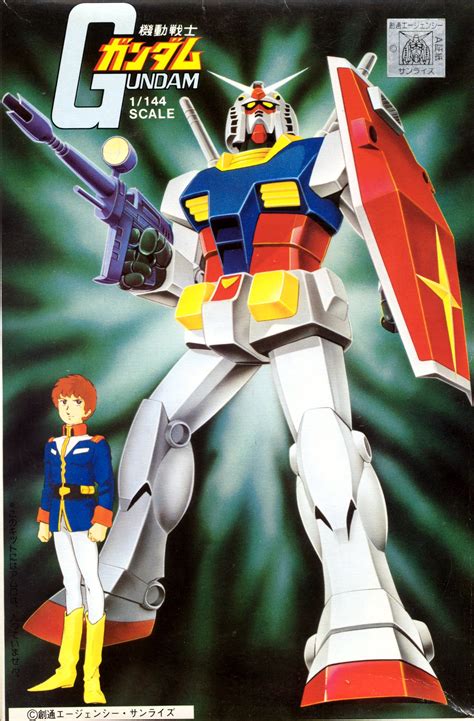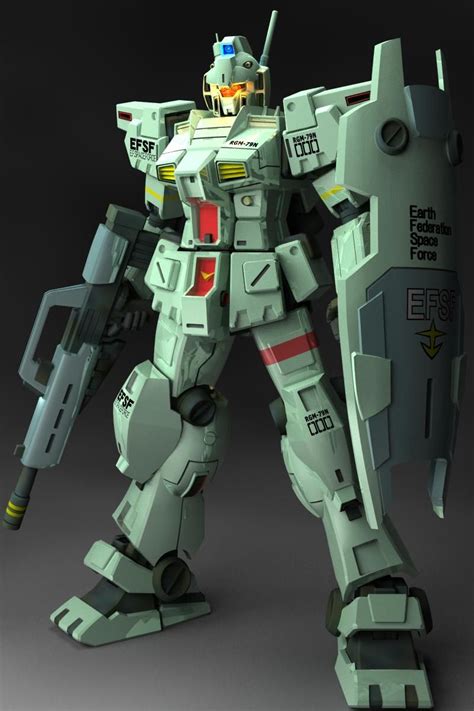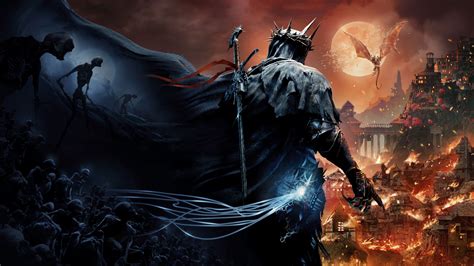Mobile Suit Gundam Review

The Mobile Suit Gundam series, which debuted in 1979, marked a significant turning point in the mecha anime genre. Created by Yoshiyuki Tomino and produced by Sunrise, this iconic series has since become a cultural phenomenon, spawning numerous sequels, prequels, and spin-offs. The original series, also known as "First Gundam" or "Mobile Suit Gundam 0079," set the stage for the franchise's exploration of complex themes, character development, and, of course, innovative mech designs.
Introduction to the Universe of Mobile Suit Gundam

The story of Mobile Suit Gundam takes place in the Universal Century (UC) timeline, where humanity has colonized space and formed the Earth Federation. The Principality of Zeon, a group of space colonies, seeks independence from the Federation, leading to a brutal and devastating war. The series follows the journey of Amuro Ray, a young pilot who becomes the protagonist of the story, and his experiences with the Federation’s new mobile suit, the RX-78-2 Gundam. Throughout the series, Tomino and his team delve into the psychological effects of war, the importance of friendship and camaraderie, and the struggle for independence and self-determination.
Key Points
- The original Mobile Suit Gundam series premiered in 1979 and consisted of 43 episodes.
- The series was created by Yoshiyuki Tomino and produced by Sunrise.
- The story takes place in the Universal Century timeline, where humanity has colonized space.
- The series explores complex themes, including the psychological effects of war and the importance of friendship.
- The Gundam franchise has spawned numerous sequels, prequels, and spin-offs, including Zeta Gundam, Gundam ZZ, and Gundam Unicorn.
Character Development and Psychological Insights
One of the standout aspects of Mobile Suit Gundam is its well-developed characters. Amuro Ray, the protagonist, is a complex and relatable character who struggles with the moral implications of war and the weight of responsibility. Throughout the series, Amuro’s character undergoes significant development, as he navigates the challenges of being a mobile suit pilot and confronts the harsh realities of war. The series also explores the psychological effects of war on its characters, including the trauma and stress caused by prolonged conflict.
| Character | Role |
|---|---|
| Amuro Ray | Protagonist and pilot of the RX-78-2 Gundam |
| Char Aznable | Antagonist and pilot of the MS-06S Zaku II |
| Bright Noa | Commander of the White Base and mentor to Amuro |

The Evolution of the Gundam Franchise

Since the debut of the original series, the Gundam franchise has undergone significant evolution, with numerous sequels, prequels, and spin-offs. The franchise has explored various timelines, including the Universal Century, After War, and Cosmic Era, each with its unique storylines and characters. The franchise has also expanded to include various forms of media, such as manga, novels, and video games. Despite the many changes and additions to the franchise, the core themes and ideas introduced in the original series remain a central part of the Gundam universe.
Impact and Influence of Mobile Suit Gundam
The impact of Mobile Suit Gundam on the anime industry and popular culture cannot be overstated. The series’ innovative mech designs, complex characters, and exploration of mature themes have influenced countless other anime series and films. The franchise has also inspired numerous fan creations, including fan art, fan fiction, and cosplay. The series’ influence can be seen in many other mecha anime series, such as Neon Genesis Evangelion and Full Metal Panic!, which have borrowed elements from Gundam’s storytelling and character development.
What is the significance of the Universal Century timeline in the Gundam franchise?
+The Universal Century timeline is the original and most well-known timeline in the Gundam franchise. It is the setting for the original Mobile Suit Gundam series and several other series, including Zeta Gundam and Gundam Unicorn. The Universal Century timeline is significant because it provides a rich and detailed backstory for the Gundam universe, exploring the history of humanity's colonization of space and the conflicts that arise from it.
How has the Gundam franchise evolved over the years?
+The Gundam franchise has undergone significant evolution since the debut of the original series. The franchise has expanded to include numerous sequels, prequels, and spin-offs, exploring different timelines and storylines. The franchise has also incorporated new technologies and innovations, such as CGI animation and 3D modeling, to enhance the visual and storytelling aspects of the series.
What is the appeal of the Gundam franchise to fans worldwide?
+The appeal of the Gundam franchise to fans worldwide lies in its rich and complex storytelling, memorable characters, and iconic mech designs. The franchise's exploration of mature themes, such as war, friendship, and self-determination, resonates with audiences of all ages. The franchise's ability to evolve and adapt to changing times, while remaining true to its core principles, has also contributed to its enduring popularity.
In conclusion, the Mobile Suit Gundam series is a landmark anime franchise that has had a profound impact on the industry and popular culture. The series’ innovative storytelling, complex characters, and iconic mech designs have made it a beloved and enduring franchise. As the franchise continues to evolve and expand, it remains a testament to the power of anime to inspire and captivate audiences worldwide.



